Home » Invertebrates » Spiders: Nature’s Tiny Exterminators – What’s Really on Their Menu?
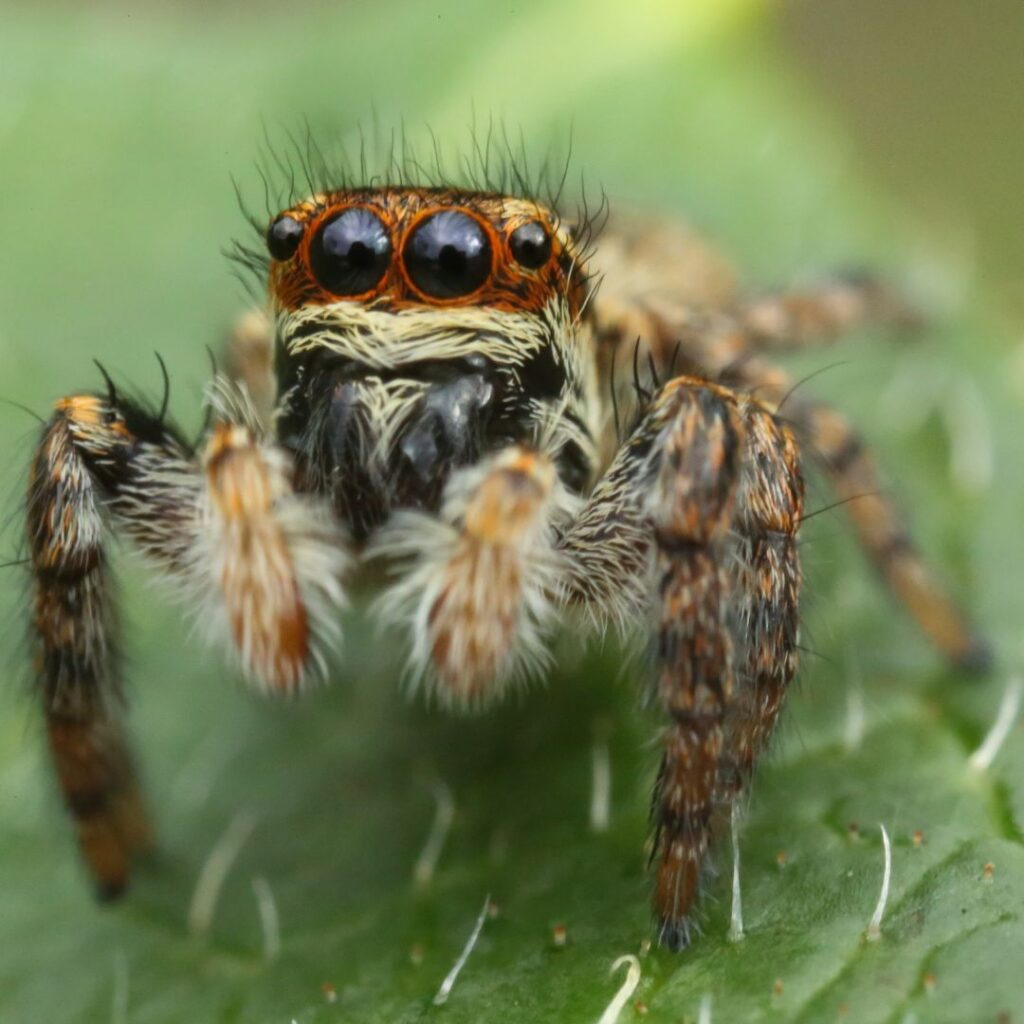
Does a spider help you around the house? Or should I say, did you know that some spiders could be your secret weapon against bugs and other insects in the house? A lot of people are afraid of spiders, but they can be useful little hunters. Let’s explore what these fascinating arachnids actually eat and bust some common myths along the way.
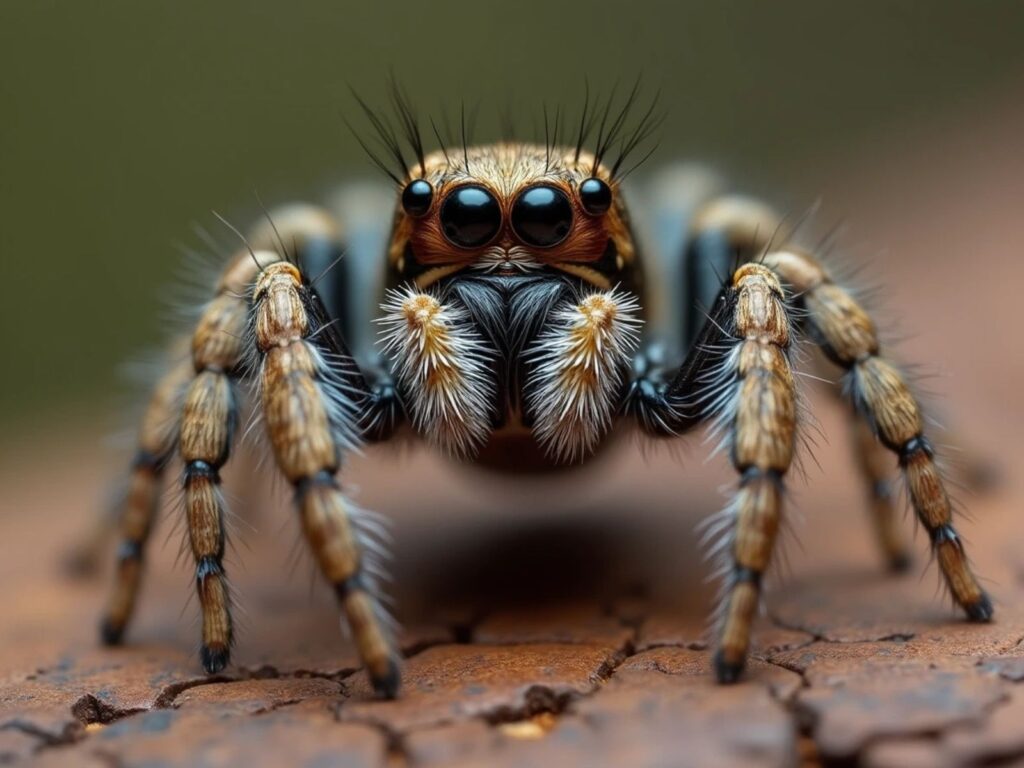
Bed bugs are a nightmare, but could spiders help? Yes! Some spiders can and do eat bed bugs, though they’re not a spider’s first choice. Bed bugs are small and tricky to catch, but jumping spiders, for example, will happily make a meal of them. They won’t completely solve a bed bug infestation, but they are your allies.
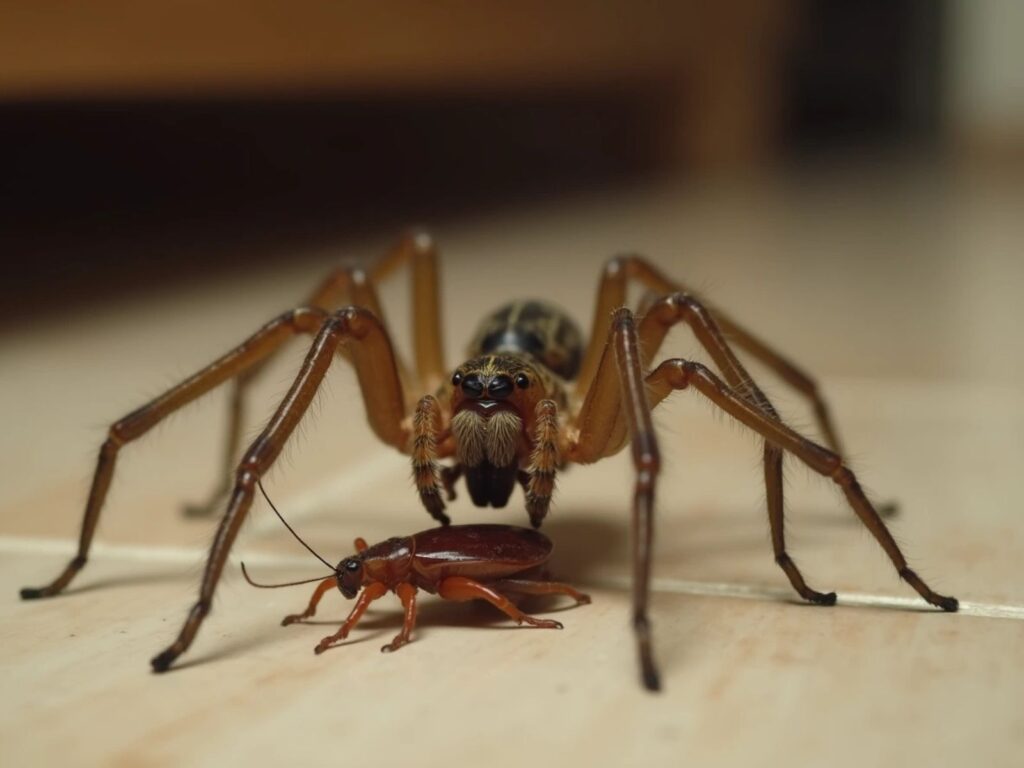
Now that’s where things get interesting. Most house spiders can’t tackle full-grown roaches; they usually eat smaller insects — it would be like us trying to wrestle a car! However, larger species like wolf spiders, huntsman spiders, or tarantulas are natural cockroach predators. They’ll take down these kitchen invaders with impressive skill.
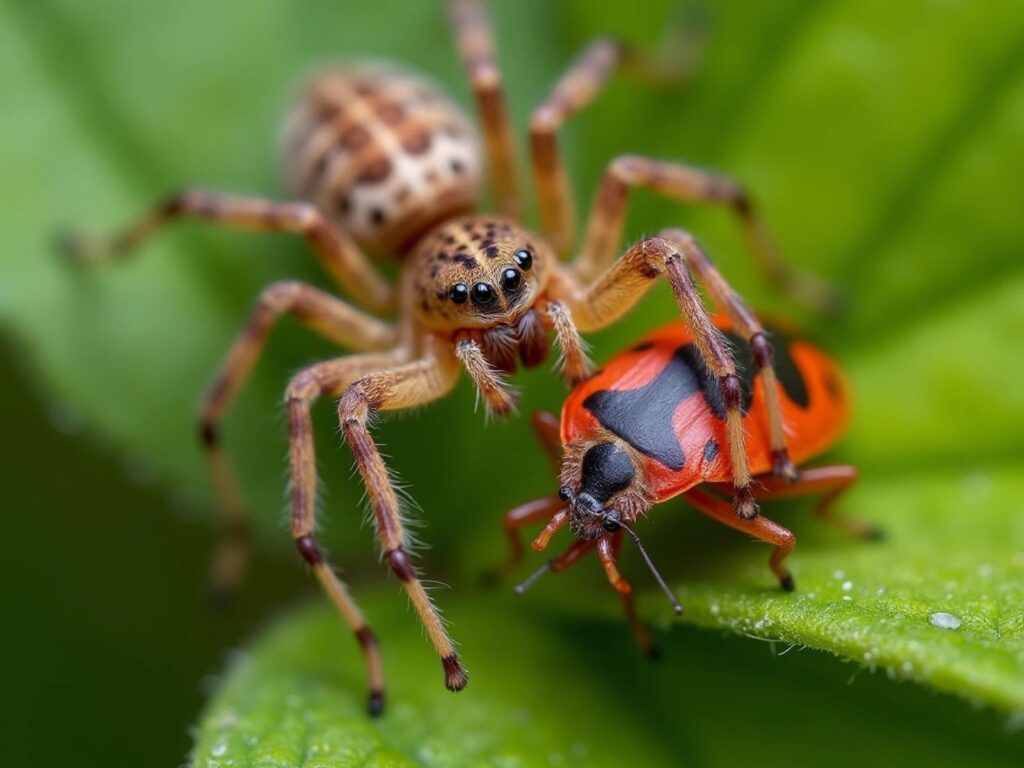
Stink bugs beware! Despite their chemical defenses, these smelly insects aren’t safe from spider predation. Many spider species have evolved to use their venom to paralyze the bug and deal with the defensive chemicals they produce.
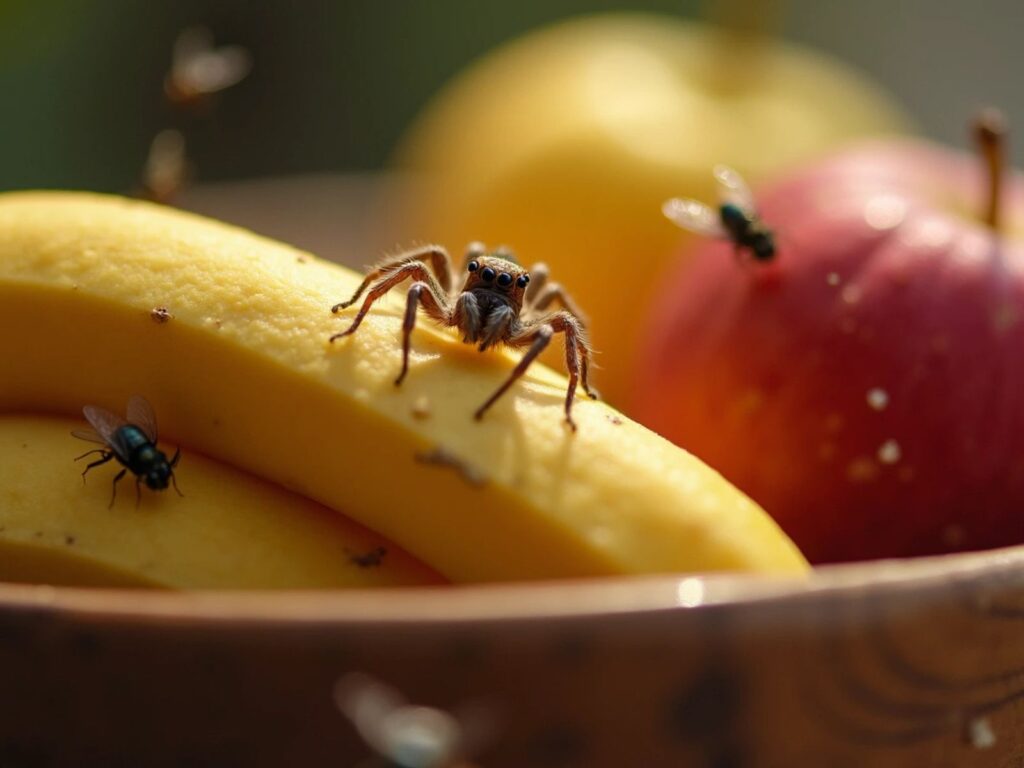
That’s where we need to clear up a common misconception. Spiders are carnivores, meaning they don’t eat fruits or vegetables. While you might spot one near your fruit bowl, they’re actually hunting for fruit flies, not trying to steal your bananas!
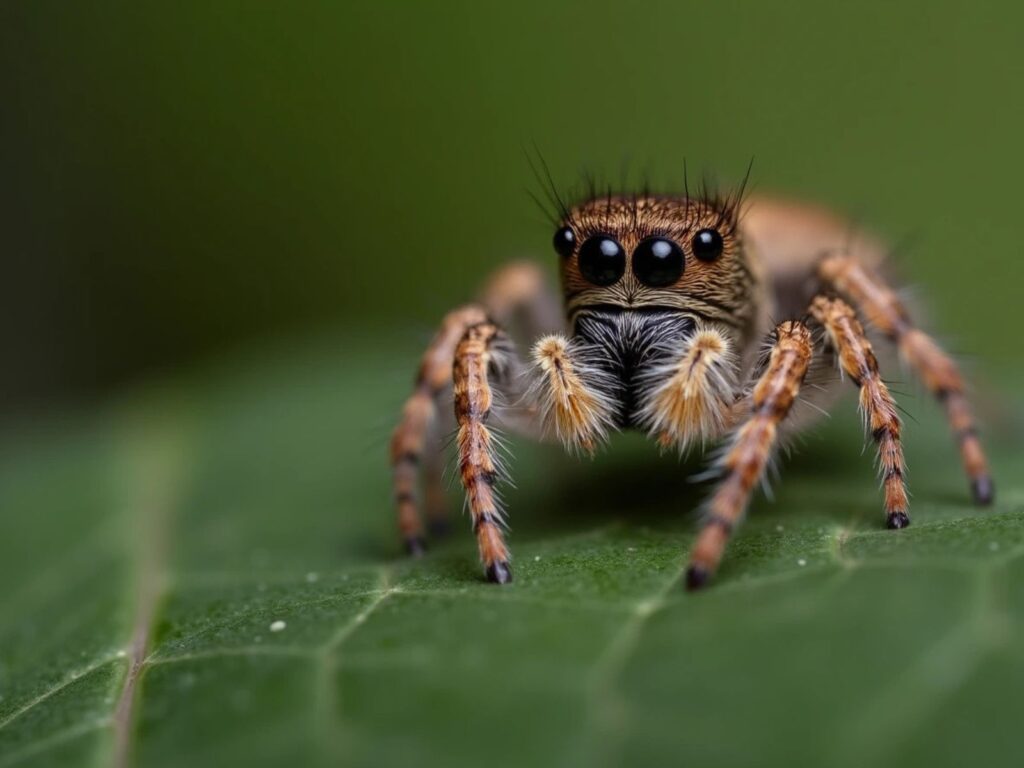
Jumping spiders are the pandas of the arachnid world – small, cute (yes, really!), and incredibly resourceful. These little hunters can survive:
Spiders have evolved some impressive tricks:
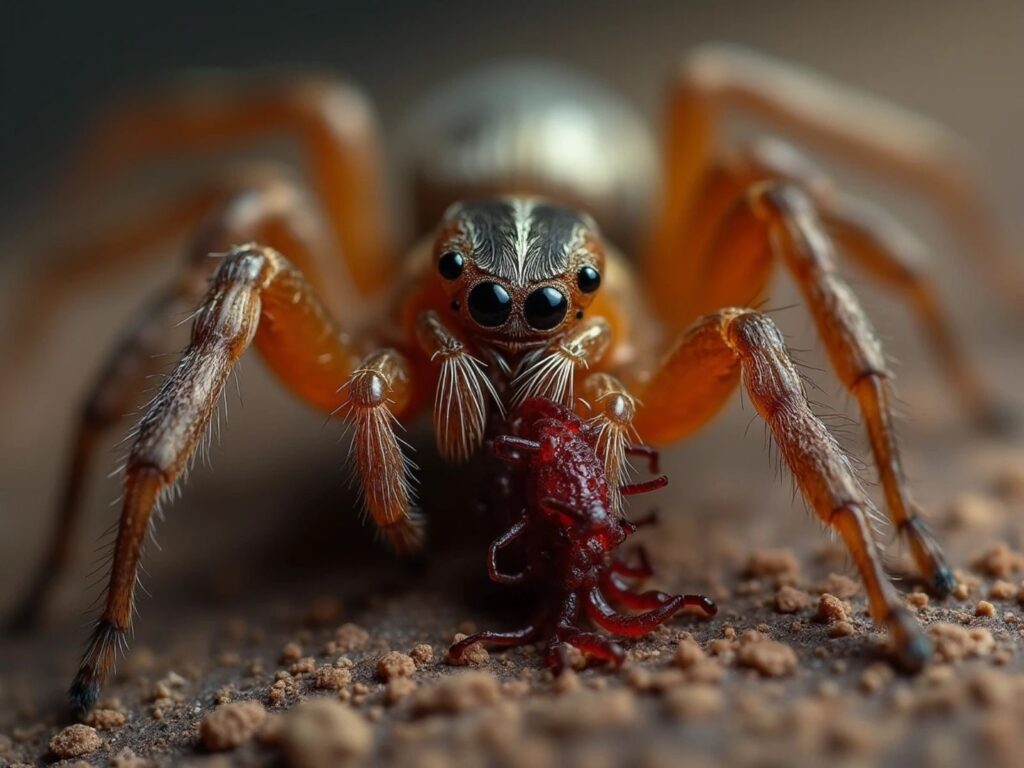
Did you know that spiders:
Whether you’re a spider enthusiast or just learning to tolerate them, they might be keeping other bugs away. Spiders are good at getting rid of bugs like bed bugs and cockroaches. Do you ever wonder how long a jumping spider can go without food? Now you know—longer than you think!
Remember: while most house spiders are harmless, always learn to identify any potentially dangerous species in your area. When in doubt, admire these amazing hunters from a safe distance!
Sign up for our newsletter and receive the next story before it is lunched
Our blog is made with love to give you advice on how to take care of your beloved pets and to help you learn everything about their stories